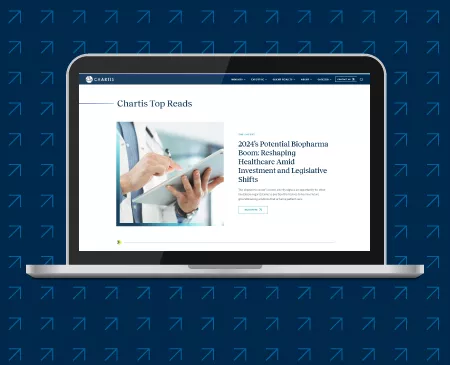The Buzz This Week
A quarter-century after the US made public health history with the elimination of measles, the US faces a new reality. Vaccination rates have fallen, and diseases like measles are on the rise. Against this backdrop, President-elect Donald Trump’s nomination of Robert F. Kennedy, Jr. as Secretary of the US Department of Health and Human Services (HHS) marks a critical moment for US public health.
Data shows that nearly three-quarters of US states now have MMR (measles, mumps, and rubella) vaccination rates below the 95% threshold needed for herd immunity. Oregon is experiencing its most significant measles outbreak in three decades, reflecting a national trend. The Centers for Disease Control and Prevention (CDC) recorded 97 measles cases in the first quarter of 2024—17 times the number reported during the same period last year. Public health experts point to declining vaccination rates as a primary contributing factor.
Amid these challenges, Kennedy could take an influential public health office. An environmental lawyer and former presidential candidate, Kennedy has become a well-known figure in vaccine policy discussions, questioning certain safety protocols and advocating for greater transparency.
Kennedy’s critiques of federal vaccine recommendations and liability protections have sparked national debate. In a recent interview on National Public Radio (NPR), Kennedy emphasized, “We’re not going to take vaccines away from anybody. We are going to make sure that Americans have good information right now. The science on vaccine safety, particularly, has huge deficits, and we’re going to make sure those scientific studies are done and that people can make informed choices about their vaccinations and their children’s vaccinations.” But the convergence of declining vaccination rates and new leadership could have significant implications for public health.
Why It Matters
Vaccine hesitancy has become a significant driver of rising infection rates of diseases like measles, whooping cough, and COVID-19. A recent national poll conducted by Ohio State University found that 37% of adults were opposed to receiving vaccines for flu, COVID-19, pneumococcal diseases, and respiratory syncytial virus (RSV). It’s a concerning trend as flu season approaches.
Overall confidence in vaccine safety remains above 50%—ranging from 57% for COVID-19 vaccines to 74% for flu vaccines. But hesitancy has grown, particularly following the pandemic.
A report from KFF found that the rate of routine vaccinations for kindergarten-aged children has yet to recover from the declines experienced during the pandemic. Many states have fallen below critical coverage benchmarks. Gallup has reported that fewer Americans today view childhood vaccines as important compared to 30 years ago. Exemptions from school vaccination requirements have risen, with 36 states reporting an increase since the onset of the pandemic. In the 2022-2023 school year, exemption rates exceeded 5% in 10 states, placing them beneath the 95% vaccination threshold needed to prevent outbreaks.
Access to vaccines remains a significant barrier for both children and adults. The pandemic strained healthcare systems and led to fewer routine pediatric visits, which disrupted vaccination schedules. Additionally, physician shortages and clinic closures—especially in rural areas—limited access for many families.
While programs like the federally funded Vaccines for Children provide free vaccines to eligible uninsured children, no equivalent programs exist for adults. In response, recent innovations and programs are aiming to make vaccines more accessible. For example, the US Food and Drug Administration (FDA) recently approved the first at-home nasal spray flu vaccine. FluMist will be available in 2025 for people under age 49. By offering needle-free, home-based vaccination, this flu vaccine may reduce barriers and boost immunization rates.
Kennedy’s vocal criticism of laws providing vaccine manufacturers with liability protections could lead to a shift in vaccine regulation and oversight, should he become HHS secretary. His pledge to “clean up corruption, stop the revolving door between industry and government, and return our health agencies to their rich tradition of gold-standard, evidence-based science” suggests a forthcoming reevaluation of existing healthcare practices.
Rebuilding public confidence in vaccines is a complex but crucial undertaking. The resurgence of measles and other preventable diseases underscores the importance of vaccination and necessary thresholds for herd immunity, as well as public health policies. The incoming administration’s approach to vaccine policy will be pivotal. The coming months will reveal how these developments may shape the future of public health in the US.
RELATED LINKS
Becker’s:
Flu shot may be less effective this season, data suggests
Becker’s:
Vaccine hesitancy drives infection rates up
KFF:
Headed Back to School in 2024: An Update on Children’s Routine Vaccination Trends
NPR:
Measles cases are up and childhood vaccinations are down
Washington Post:
Changes RFK Jr. could make as HHS secretary, from vaccines to raw milk
Editorial advisor: Roger Ray, MD, Chief Physician Executive.







